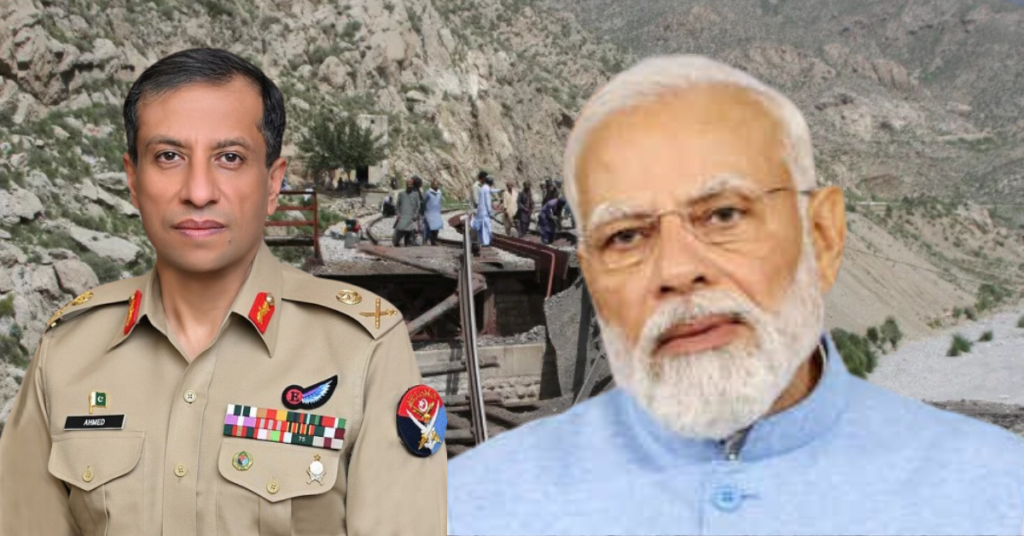Pakistan has once again accused India of orchestrating terror activities in Balochistan, with the Director General of the Inter-Services Public Relations (DG ISPR), Lieutenant General Ahmed Sharif Chaudhry, directly blaming India for supporting militant groups. His remarks came after a deadly attack on the Jaffar Express train, which resulted in dozens of deaths and a tense hostage crisis.
Jaffar Express Attack: A Grim Reminder of Balochistan’s Security Woes
The tragic incident unfolded when the Jaffar Express, en route from Quetta to Peshawar, was ambushed in the Bolan district. Militants planted an improvised explosive device (IED) on the railway tracks, bringing the train to a halt before launching a brutal assault. The assailants, reportedly from the Baloch Liberation Army (BLA), took passengers hostage, leading to a standoff with security forces.

Following a swift counter-terrorism operation, Pakistani forces managed to rescue the hostages and eliminate 33 attackers. However, the attack came at a heavy cost—26 lives were lost, including 18 security personnel.
DG ISPR: India’s Involvement and Foreign Handlers
Speaking at a press briefing, Lt Gen Ahmed Sharif Chaudhry alleged that India was the main force behind the attack, accusing New Delhi of backing militant groups in Balochistan. He claimed that the perpetrators were in direct communication with handlers based in Afghanistan during the assault.
According to Chaudhry, the Indian media further fueled tensions by spreading false narratives and using artificial intelligence-generated content to distort facts about the attack. He condemned what he described as India’s continued efforts to destabilize Pakistan through covert means.
Pakistan’s Foreign Office Echoes Allegations
Pakistan’s Foreign Office (FO) reinforced the ISPR’s accusations, stating that intelligence reports confirmed the involvement of terror networks with links to India. Officials pointed to intercepted communications indicating that the attackers coordinated with contacts in Afghanistan, heightening concerns about cross-border militancy.
Pakistan has repeatedly urged the Afghan interim government to crack down on groups like the BLA, which allegedly use Afghan territory as a base for launching attacks on Pakistani soil.
The BLA’s Role in Balochistan’s Ongoing Insurgency
The Baloch Liberation Army, labeled a terrorist group by Pakistan, has been active for years, seeking greater autonomy for Balochistan and control over its natural resources. Their insurgency has involved attacks on security forces, government installations, and infrastructure, often targeting symbols of the state.
The Jaffar Express attack is one of the most significant escalations in recent months, underscoring the persistent security challenges in the region. The incident has once again raised critical questions about external influences, regional stability, and the ongoing struggle to curb militancy in Balochistan.
Regional Security at a Crossroads
With Pakistan blaming India for fueling unrest and Afghanistan being called out for harboring militant elements, the Jaffar Express attack has exacerbated already strained relations in the region. Islamabad has vowed to continue its counter-terrorism efforts while demanding international attention on what it describes as Indian-sponsored terrorism.
As tensions mount, the attack highlights the urgent need for diplomatic dialogue, regional cooperation, and enhanced security measures to prevent further bloodshed in Balochistan.
